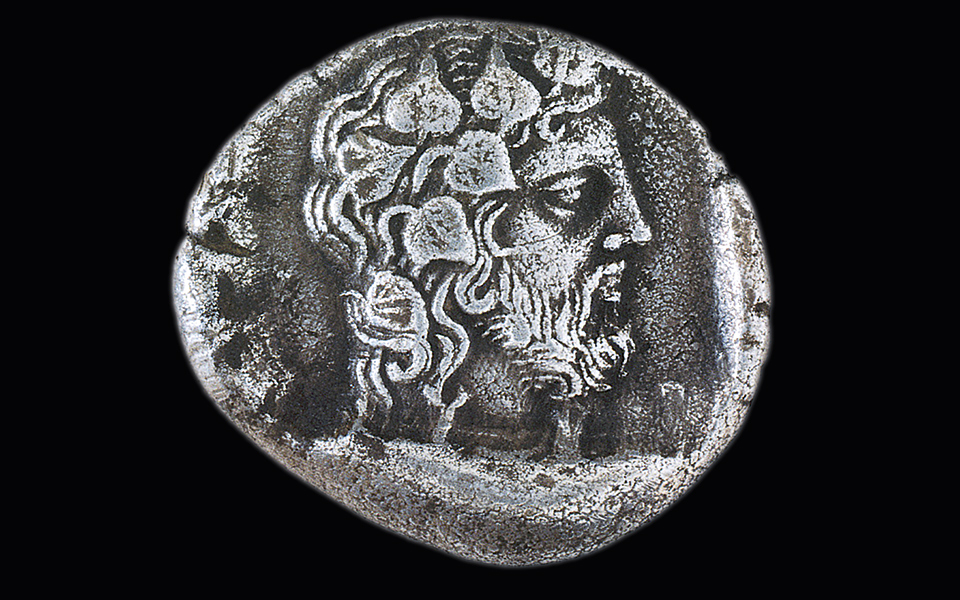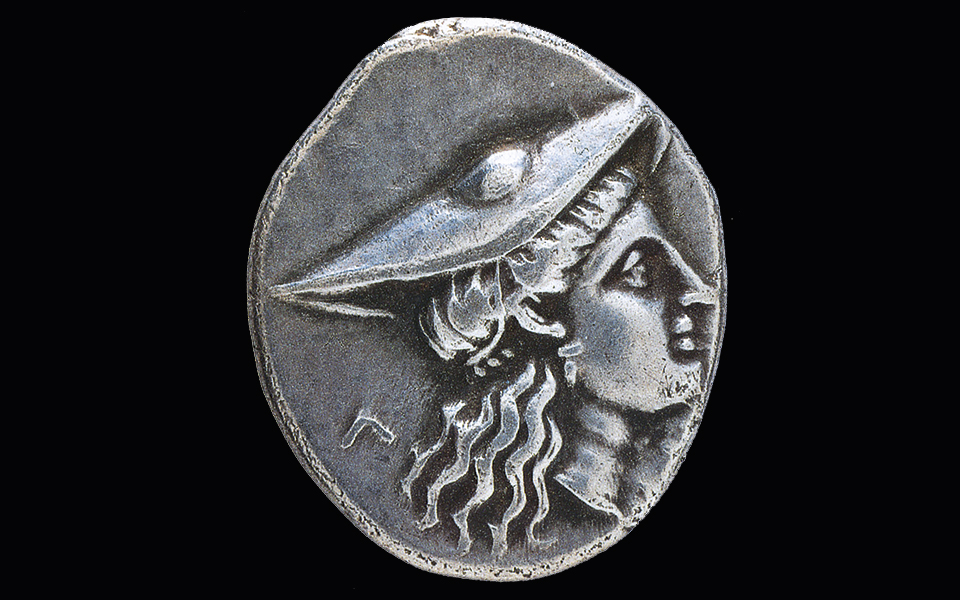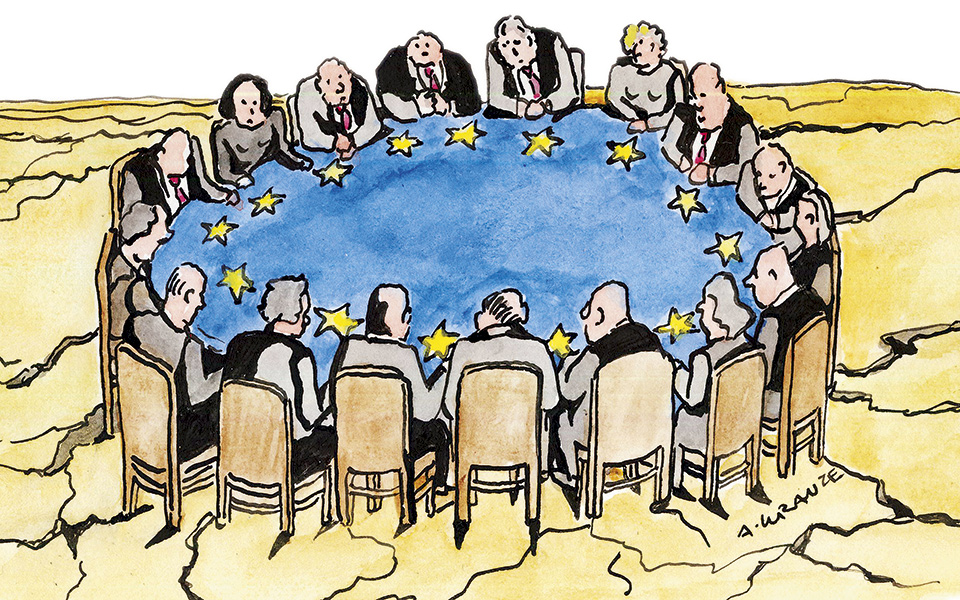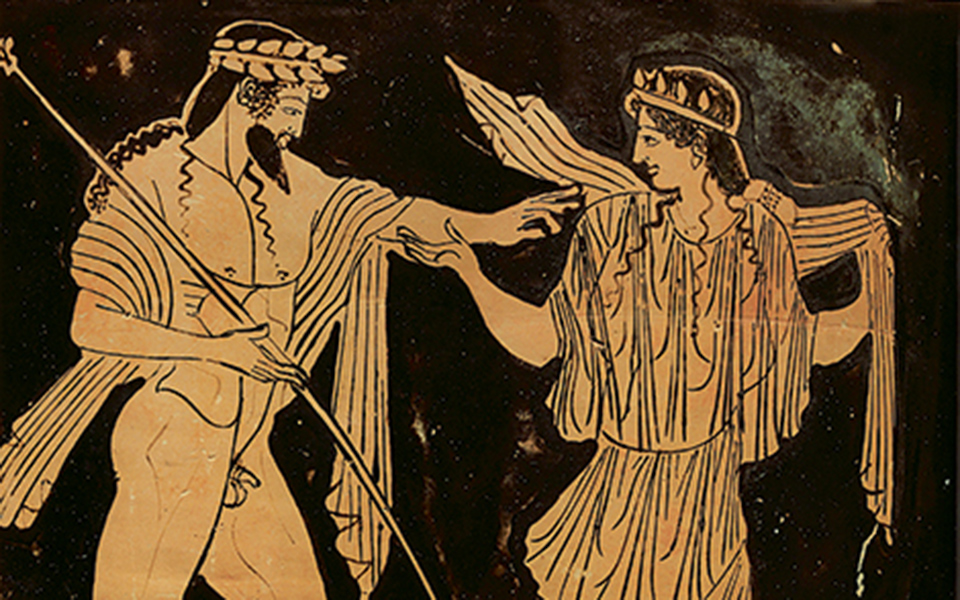It is well known and generally accepted that direct democracy emerged in ancient Greece at the end of the 6th c. BC. Ancient historical sources mention at least 18 democratic city-states by the beginning of the 5th c. BC. What is less known is that the idea of federations also emerged in ancient Greece (they were already present during the 5th c. BC); most notably the Boeotian Federation but also others, including the Chalkidean (in Macedonia), Aetolian (in Central Greece) and Achaean (in the Peloponnese). Many of the American “founding fathers,” including John Adams, James Madison and Thomas Jefferson, were aware of this through their readings of Polybius, Plutarch and Livy, as attested by the Federalist Papers.
The Boeotian Federation, comprised of 11 regions containing about 31 city-states, featured a number of federal institutions. At the city-state level, there were local “parliaments” which consisted of three or four “committees” charged with various administrative tasks. This organizational model was later revived in the late medieval era by the Old Swiss Confederacy at the end of the 13th c. and continued by the United Provinces (Dutch Republic) from the end of the 16th c. to the end of the 18th c. The Dutch federation consisted of seven Provinces, including about 52 semi-independent cities.
Each Boeotian region was represented at the federal level by a “boeotarch” who was that region’s political and military leader. The 11 boeotarchs were elected for a period of one year by the citizens’ assemblies of the city-states in each region. Any abuse of this one-year term of office by a boeotarch was punishable by death. The meeting place of the boeotarchs was Thebes, the federal capital, and its citadel, the Kadmeia. The Federation was, on the whole, successful, because it functioned as a counter-force to the power of both neighboring Athens during the 5th c. BC (as a major ally of Sparta and the Peloponnesian League) and to that of Sparta (as an ally of Athens) during the 4th c. BC. But it had a serious internal flaw: among its constituent city-states, Thebes was too powerful. This strong disparity of power stemmed mainly from Thebes’ large population, and thus from its military and economic-political strength. Consequently, the Boeotian Federation became de facto a Theban sovereignty – a development similar to the Delian League becoming an Athenian empire.
“What is the exact meaning of solidarity and its relation to the federation’s responsibility towards its members?”

© NUMISMATIC MUSEUM OF ATHENS/MINISTRY OF CULTURE AND SPORTS/ARCHAEOLOGICAL RESOURCES FUND/EPHORATE OF BOEOTIA
“The ancient federations, like the modern ones, were based on solidarity, trust and a perception of common interest.”
Thebes demonstrated that it would not tolerate other city-states not following its lead, and would not accept the defection of any city-states that might wish to leave the federation, something seen also in the American Civil War. Secession without conflict was not an option for Boetian city-states, just as it was not for the 19th c. American Confederate States. Thebes destroyed Plataea, for example, which did not want to participate in the federation because it was always a staunch ally of Athens – fighting with the Athenians at Marathon in 490 BC, and later at Thespiai and Orchomenos, the latter being the only Boeotian city strong enough to challenge Theban hegemony.
In the long run, this policy proved catastrophic. When Thebes revolted against Macedonian occupation in 335 BC, it did so without support, because none of its supposed Boeotian allies wished to fall again under Theban hegemony, preferring instead the more distant Macedonia. Some Boeotian city-states even actively participated in the war against Thebes and in its besiegement by the Macedonians. The result was the destruction of the Theban city-state by Alexander the Great. Other Greek federations – the Aetolian and Achaean, but also a revived Boetian federation during the 3rd c. BC – learned their lesson and strove to be fully democratic, preserving the equality of all their members.
Are there lessons to be learned by the European Union (EU) from the ancient federations? What is the exact meaning of solidarity and its relation to the federation’s responsibility towards its members? The term “Union” seems to indicate an ideal, the goal of the EU to become a true federation, which it has not yet achieved.
The ancient federations, like the modern ones, were based on solidarity, trust and a perception of common interest. Since 2000, particularly within the European Monetary Union (EMU), the EU appears in praxis to have been governed by its stronger members, especially Germany, which impose their will and the mix of policy measures they deem appropriate without taking into account sufficiently (some would say not at all) the interests of the smaller and economically weaker member-states, just as Thebes did to its own detriment more than two millennia ago.
This power imbalance has led to a similar reaction by the citizens of the EU’s less robust member-states (Greece, Cyprus, Italy, Spain and Portugal), who perceive that policy measures are being imposed on them which they have never approved and which operate against their own interests. Increasingly, these member-states see a lack of solidarity and a democratic deficit. As in the ancient example, this imposition of power by a stronger over weaker member-states is leading in the long run to anti-German sentiment, failing cohesion and the danger of EU breakdown. Recent developments such as the immigration problem, with the reaction of the Visegrad Group (Poland, Hungary, the Czech Republic and Slovakia), the erection of frontier walls or fences within the EU, and Brexit are indications of these trends.

© NUMISMATIC MUSEUM OF ATHENS/MINISTRY OF CULTURE AND SPORTS/ARCHAEOLOGICAL RESOURCES FUND/EPHORATE OF BOEOTIA
“Today’s federations offer comparable examples of federal-level mistakes affecting member-states.”
How can such trends be reversed? Let us illustrate through an age-old case how solidarity was understood by the ancient federations, and what lessons we may draw today from this understanding.
Polybius records that the federal Achaean administration offered tax immunity for three years to its member-state of Messene, so as to help the city’s economy recover after the serious damage inflicted on its infrastructure by the so-called Social War of 220–217 BC, when the Achaean Federation was engaged in warfare with the neighboring Aetolian Federation.
For some reason that the ancient sources do not sufficiently explain, the federal army was not ready in time to defend Messene, as was the federation’s obligation and responsibility. Consequently, Messene had to hire the services of mercenaries to increase its own military force, and to pay them through its own financial means. The federation’s government, elected by the assembly of its citizens, the supreme decision–making body, accepted that they had failed to fulfill their obligations and responsibilities under the solidarity provision towards Messene. Thus, they decided that the federation owed compensation to Messene; this took the form of federal tax immunity for three years. Polybius (Hist. 24.2.3; 23.15.1–3) describes the characteristic doctrine that the Achaean federal administration adopted: “…that the destruction of the territory of Messene [would] harm the Achaeans [as a whole] no less than the Messenians”.

© Cartoon by Andrzej Krauze/Guardian News & Media
Today’s federations offer comparable examples of federal-level mistakes affecting member-states. Under the EU’s solidarity provisions, from 2010 onwards, Greece received EU and International Monetary Fund (IMF) loans totaling €240 billion in order to avoid bankruptcy and to repay its debts. The loans were linked to certain policy measures specified in EU memoranda. The problem, however, was that the policy measures were wrongly specified and wrongly applied, due to a mistaken estimation of the negative multiplier, i.e., the effect on GDP from cuts in public spending. The actual multiplier was almost double the one calculated by the IMF, leading to a much deeper recession than originally estimated. This mistake was recognized both by the IMF’s chief economist, Olivier Blanchard, and IMF director Christine Lagarde, who publicly apologized. The question raised here (for the first time, as far as we know), inspired by the ancient, analogous case of Messene, is whether the EU, being responsible for damage done to one of its member-states due to its own (and not the member’s) mistake, is liable to provide compensation.
The order of magnitude of that damage can be estimated: the difference between the multipliers being double, the recession of the Greek economy in 2010-2011 was actually -10% of GDP, as opposed to the wrongly estimated -5% of GDP. Taking into account that Greece’s GDP in 2009 was €230 billion, the difference of 5% amounts to a magnitude of damage, due to the application of the wrong policy measures package, of about 11 to 12 billion euros. Has Greece the right to claim compensation for this damage, which was done to its economy through an EU/IMF mistake? We suggest this is an important point that should be taken into account during negotiations for the alleviation of Greece’s debt.
Another issue that diminishes the perception by EU citizens that their common interests are being served is the EU’s substantial democratic deficit. The EU represents the least democratic political body among both ancient and contemporary federations, as measured by the participation level of its citizens in decision-making.
“Unlike the ancient Greek federations, in the modern EU, the major positions of authority are appointed after negotiations between member governments and are not open to all EU citizens.”
Unlike the ancient Greek federations mentioned above – where all institutional positions (including the “general” who was the political and military leader, the finance ministers and the officials (vouletai) responsible for preparing the agendas for the discussions in the national assemblies) were filled through direct democratic procedures – in the modern EU, the major positions of authority, including the President, the “foreign minister” and the President of the EU Commission, are appointed after negotiations between member governments and are not open to all EU citizens. The only elected body is the European Parliament, which has the least consequence of any of the EU’s federal institutions. Is it any wonder, then, that European citizens feel mistrustful of their federal government? It is a clear case of EU authorities “deciding for us without us.”
We believe that EU leaders can learn from ancient federations, just as the American founding fathers did. We propose that the EU’s main positions (including President of the EU as well as President and Members of the EU Commission) should be open to all citizens and filled through European elections. As a second step toward greater democratization, we propose the introduction of popular initiatives leading to obligatory referenda with binding outcomes at the European level, based on the model of certain modern federations and countries, including Switzerland, Uruguay, New Zealand, some US states (including California), German federal states and many European cities (e.g., Vienna).
Combined, these two steps would give European citizens a greater feeling of participation in a common European future. We reject the argument that these citizens are still too immature to be burdened with such decision-making. This is a dangerous and deeply anti-democratic argument, because it implies that EU citizens, unable to make correct choices, cannot be trusted with the election of candidates. If so, why democracy at all? On the contrary, we believe that increased participation educates citizens politically – as it did in ancient democracies and federations and as it does so again today in some political systems – and makes them feel as though they have a stake in their common European political future.
“We believe that increased participation educates citizens politically – as it did in ancient democracies and federations and as it does so again today in some political systems.”











